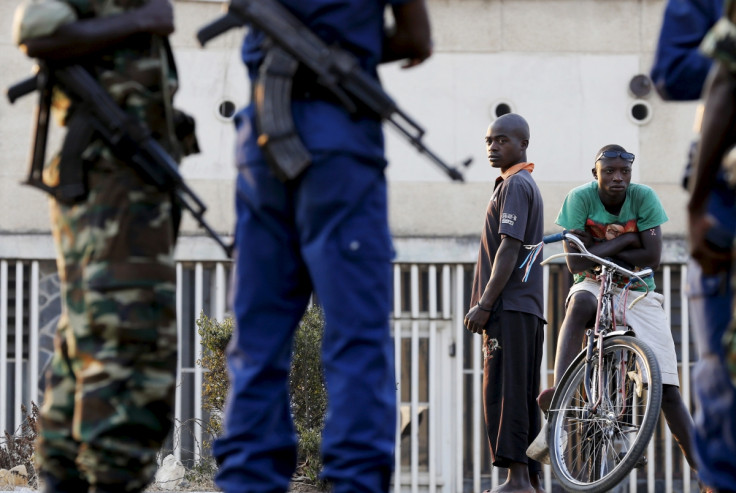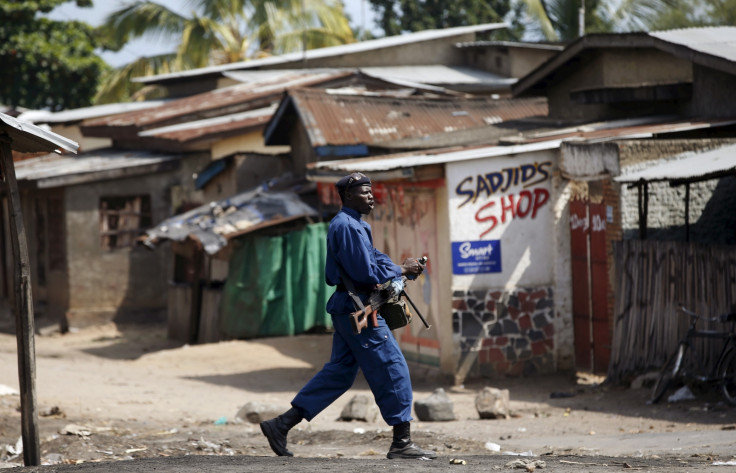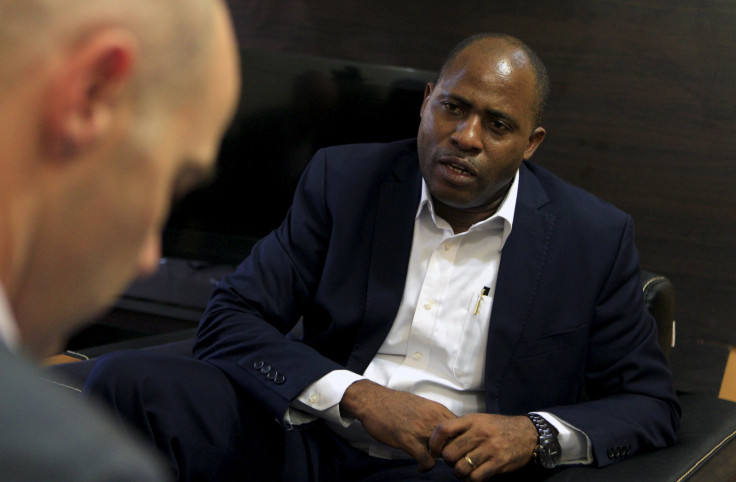Burundi: EU slaps sanctions on President Nkurunziza security officials for 'undermining democracy'

The European Union (EU) on Thursday (1 October) imposed sanctions against four Burundians it accuses of "undermining democracy" and blocking efforts to resolve the political crisis. Burundi's President Pierre Nkurunziza won a controversial third five-year term in July in polls which were boycotted by the opposition as unconstitutional for breaking a two-term limit. His re-election sparked an attempted coup by rebel generals and months of civil unrest.
In a statement, the EU announced the travel restrictions and an asset freeze were against four individuals "whose actions undermine democracy or are barriers to bringing about a political solution to the current crisis in Burundi".
While the European Council, the EU's political arm, did not identify the four individuals, a European diplomatic source did, confirming the names and reasons for their blacklisting published in the defence blog Bruxelles2.

Three Nkurunziza associates, one putschist
Three individuals are high-ranking security officials. The fourth is a putschist who lead a coup d'etat against Nkurunziza on 13 May.
Gervais Ndirakobuca, alias Ndakugarika, the head of cabinet of the presidential administration in charge of the national police. The EU accuses him of being "responsible for acts of violence", particularly on 26, 27 and 28 April in the dissenting neighbourhoods of Nyakabiga and Musaga in the capital Bujumbura.
Godefroid Bizimana, the deputy head of the national police is accused of having taken "operational decisions that resulted in a disproportionate use of force and acts of violent repression".
An agent from the intelligence service, Mathias-Joseph Niyonzima, also known as Kazungu, is allegedly one of the officials leading the Imbonerakure militia, the youth league of the presidential party CNDD-FDD, whose role in the crackdown was denounced by the EU.
The fourth is former general Leonard Ngendakumana, a rebel general who took part in a failed coup in May to topple Nkurunziza. The EU alleges Ngendakumana is "responsible for grenade attacks as well as incitement to violence".

EU sanctions 'too symbolic'
While a number of Burundians have welcomed the EU's decision, many are calling on Brussels to impose tougher economic sanctions, describing the current travel bans and asset freezes as "too symbolic", as the East African country sinks into chaos.
"For me, it is an important signal that the European Union has just given, and this is a first. But we regret that Nkurunziza himself and General Bunyoni are not on the list even if they control the violence," Pacifique Nininahazwe, civil society group leader, told IBTimes UK on Friday.
He added: "The whole question is whether Nkurunziza and his clique can understand such a message."
On 28 September, Zeid Ra'ad Al Hussein, the UN High Commissioner for Human Rights, reported an alarming upsurge in killings in Burundi since the beginning of September, saying that almost every day, dead bodies are found lying on the streets of capital Bujumbura's neighbourhoods.
These "false" allegations were denied by presidential adviser Willy Nyamitwe, who told RFI: "There are people of the radical opposition who are probably committing these crimes to attract ostracism against the power of Bujumbura."
The identities of the four individuals will be published in the EU's Official Journal on Friday.
Burundi up close: Check out our Flipboard magazine
© Copyright IBTimes 2025. All rights reserved.






















